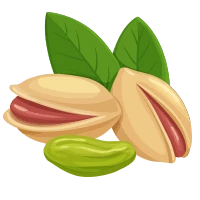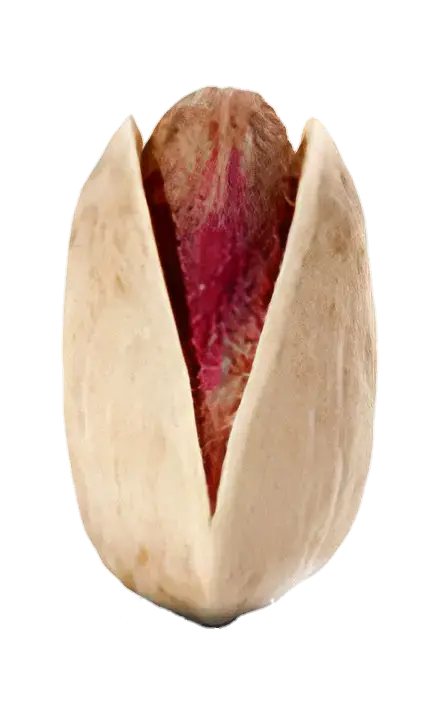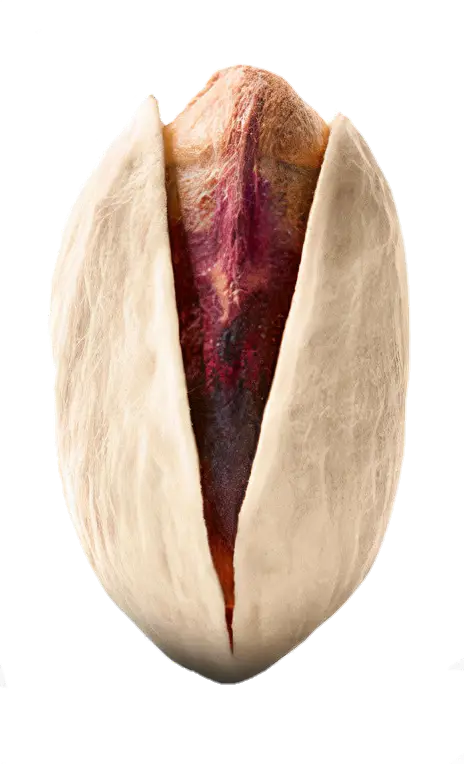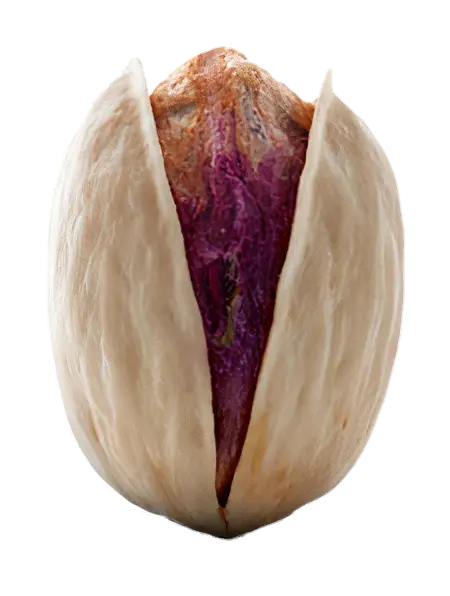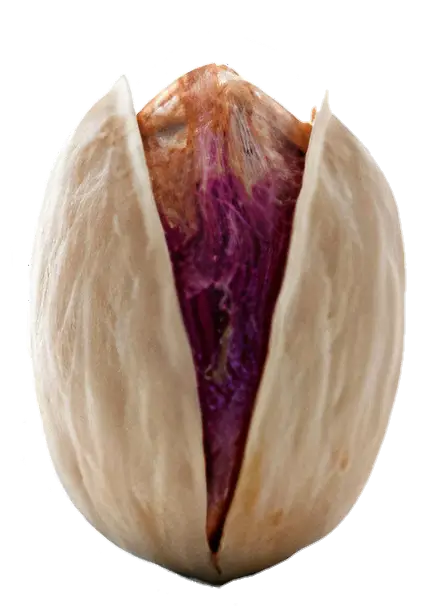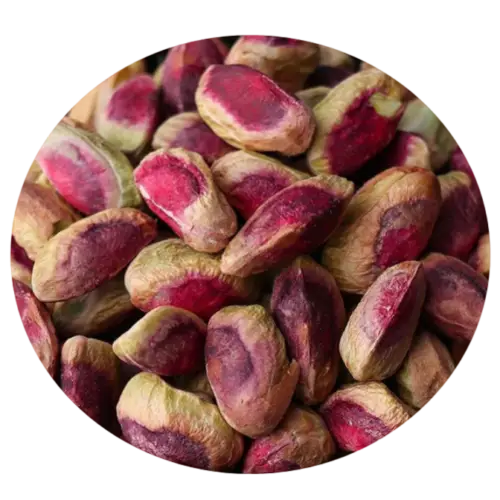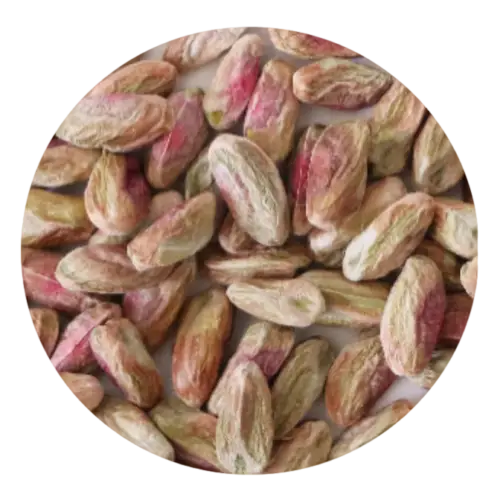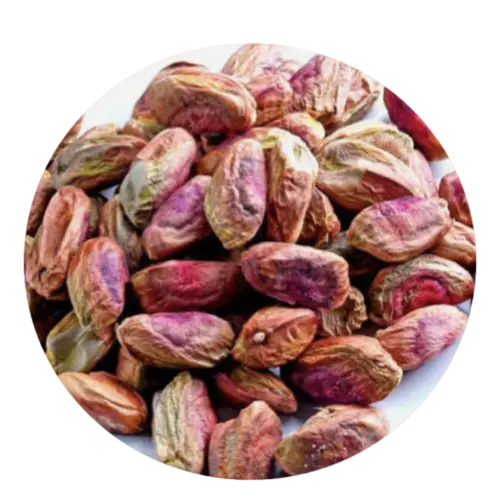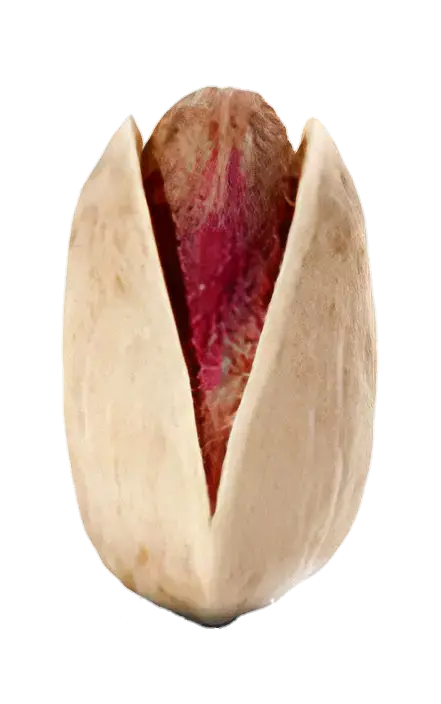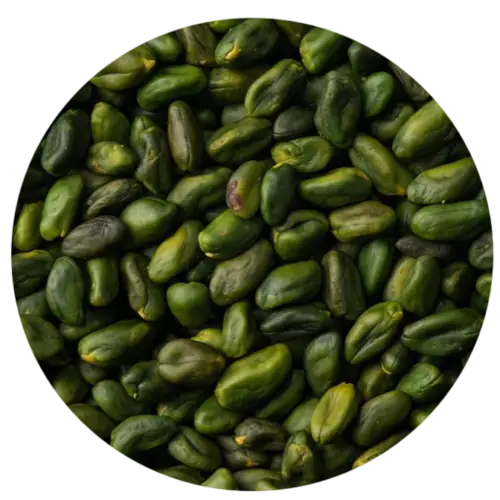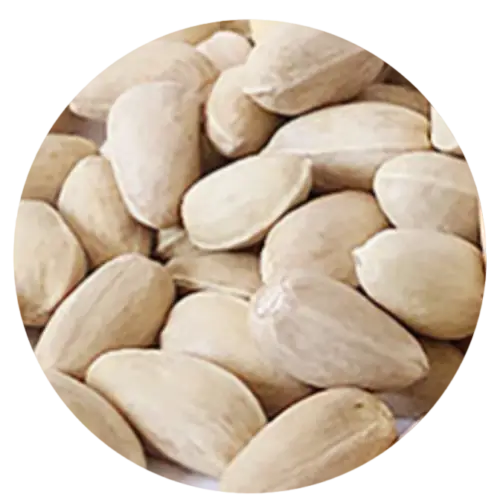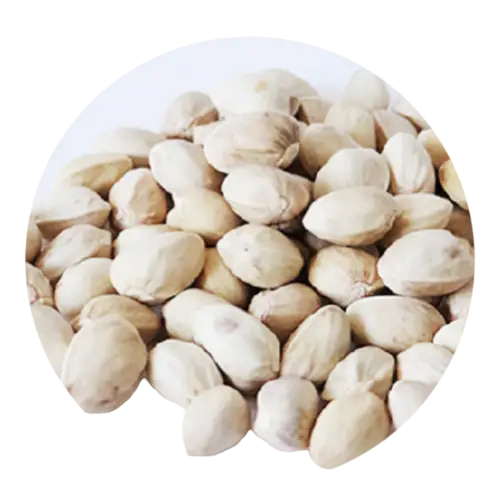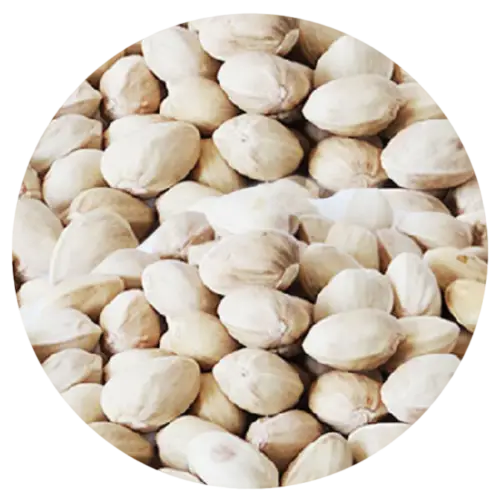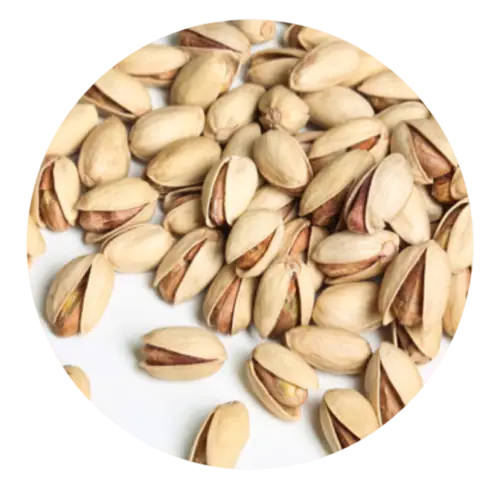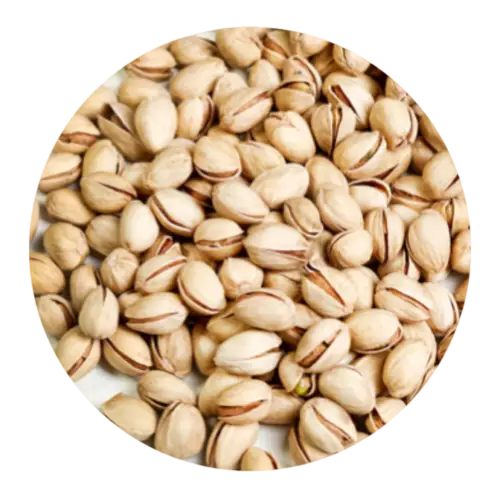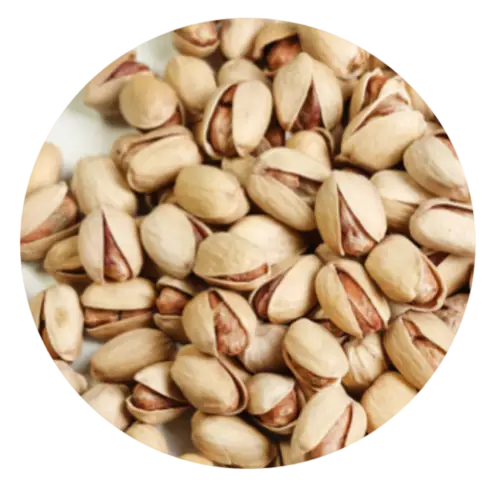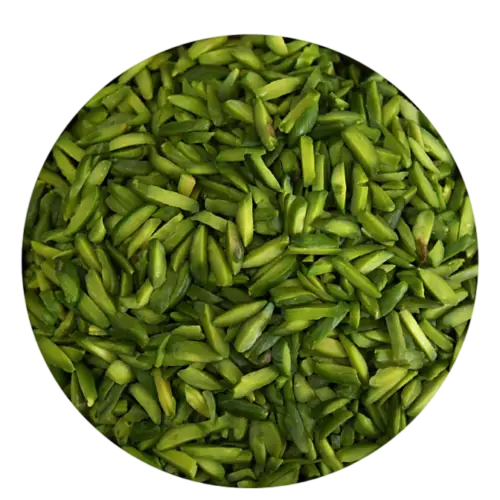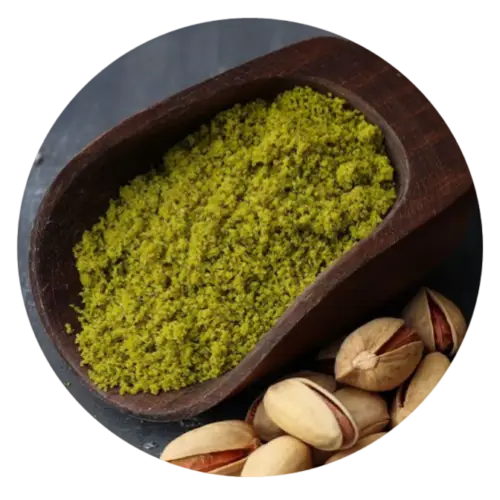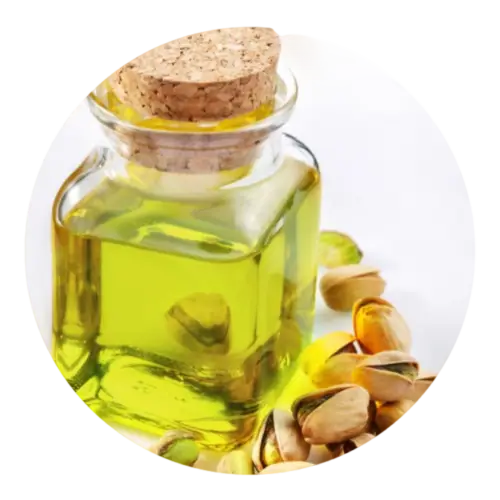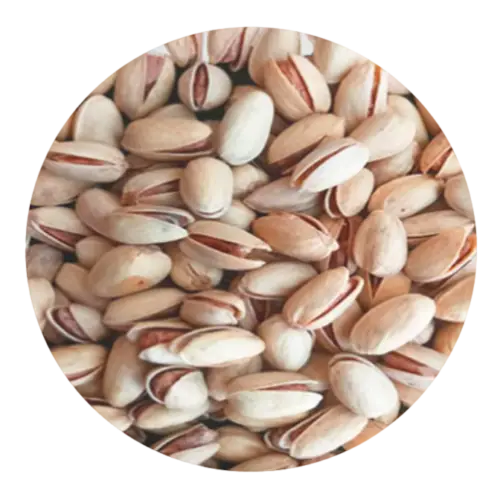Buy Akbari Pistachio at the Best Price | Super Long & Grade 1
Akbari pistachios, also known as "Shah Pistachio" or "Abdullahi Pistachio," are the most luxurious and expensive Iranian pistachios. This variety belongs to the long, almond shaped pistachio group. Its shell is a bone color, and its kernel is a brownish purple. Akbari pistachios are the most popular type of Iranian pistachio for export and are recognized globally as Iranian pistachios. If you intend to buy Grade A Akbari pistachios at wholesale prices, AriaExport is at your service. We are one of the main suppliers and exporters of Akbari pistachios in Iran, working directly with farmers. For consultation, please contact our experts and support team.
Introducing and Buying Akbari Pistachios
Akbari pistachios are primarily cultivated in Iran, with the majority of production occurring in Kerman Province, specifically in cities like Rafsanjan and Sirjan. They are also grown in other areas such as Damghan and certain cities in Razavi Khorasan Province.
Globally, Akbari pistachios are recognized for their elongated shape. While not exceptionally plump, their popularity stems from their tall and elegant appearance. In Iran, this pistachio is also known as "Abdullahi." It was identified in the 1950s by an enthusiastic farmer named Haj Akbar Pasandideh in Abbasabad village, Aminshahr, Rafsanjan. Mr. Pasandideh was instrumental in propagating and introducing this pistachio to the world.
Among the two main categories of pistachios (round/hazelnut shaped and almond shaped), Akbari pistachios fall into the almond shaped category due to their elongated form. This variety is late maturing and requires less water, making it a preferred choice for many farmers.
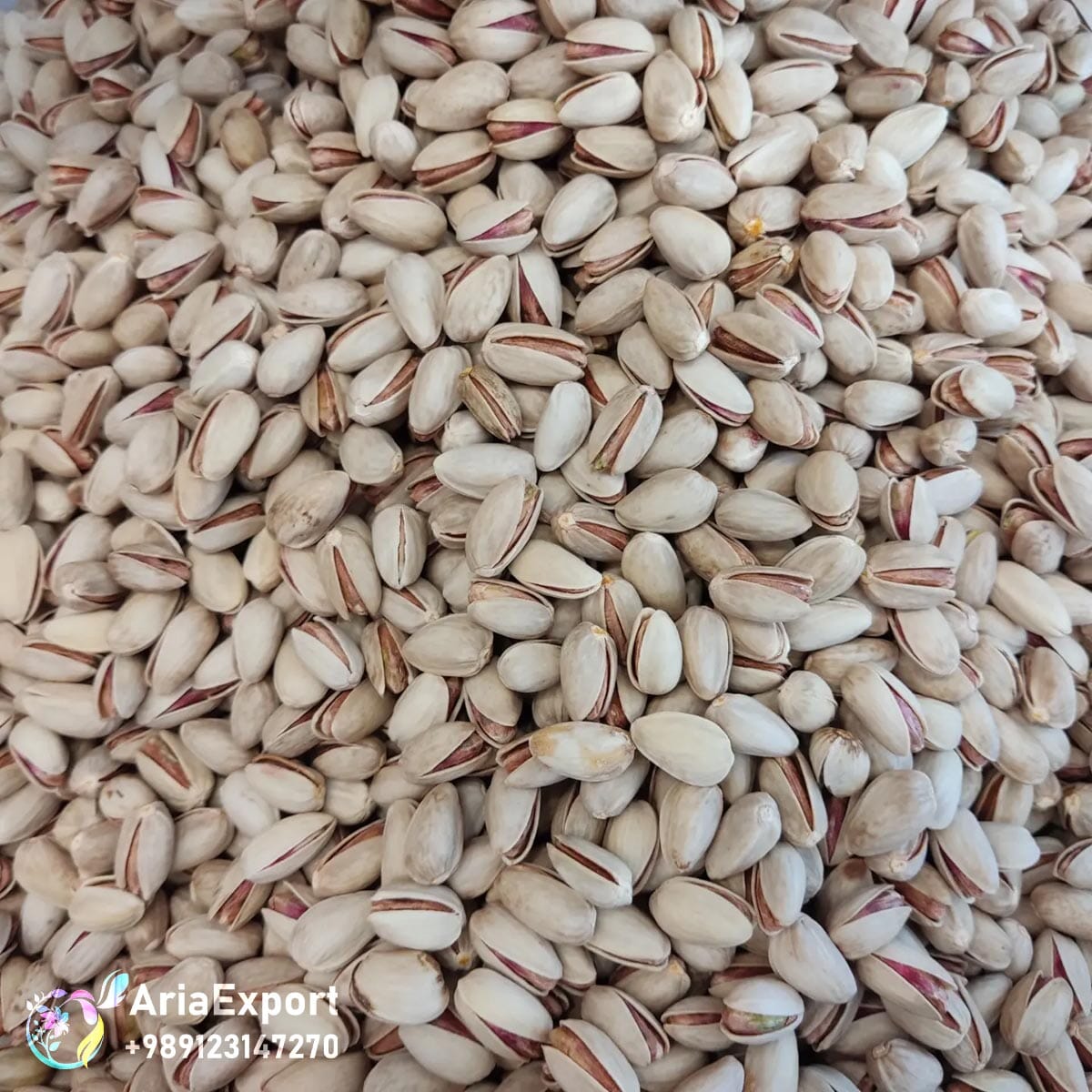
Akbari pistachios are highly sought after in European and Asian countries. They are primarily exported to Europe, China, India, and Persian Gulf countries like the UAE and and Qatar.
These pistachios have a very strong and delicious flavor. Their kernel has a leathery texture, which means it doesn't get damaged when separated from the shell. Akbari pistachios are harvested in the third week of September. Therefore, in years with very hot summers, this product often suffers damage, and its quality decreases. Like Ahmad Aghaei pistachios, Akbari pistachios are cultivated in the warm and dry regions of Iran and are well adapted to these climates.
See also:
If you're looking to buy high quality Iranian Akbari pistachios in bulk, Aria Export is here to serve you with decades of experience. This product is an excellent choice for importers seeking a profitable commodity. We have numerous customers worldwide and have successfully exported Iranian agricultural products to many countries.
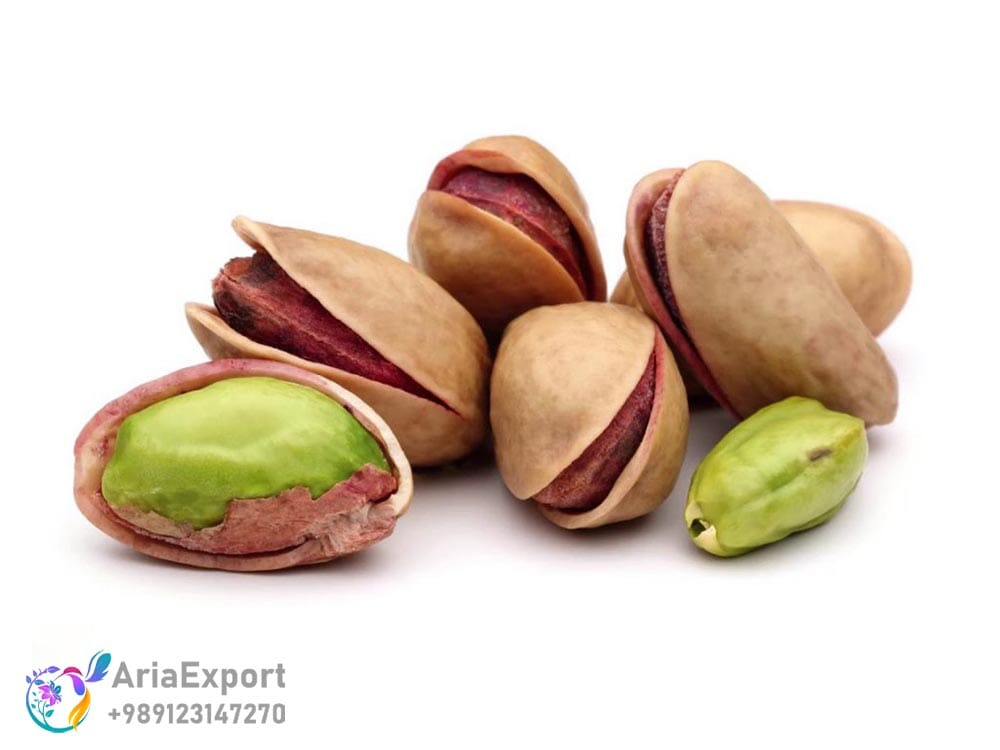
Akbari Pistachio Price
The prices offered by AriaExport Co. for Akbari pistachios are wholesale and highly suitable for export. The main reasons for price variations can be summarized by two factors: pistachio quality and the presence of middlemen.
- It's natural for higher quality products to have a higher price. We supply the best grade of Akbari pistachios, known as Super Long Akbari Pistachios.
- The second factor is middlemen. If you don't buy directly from the primary supplier, the price is typically higher because middlemen also need to make a profit.
Read More:
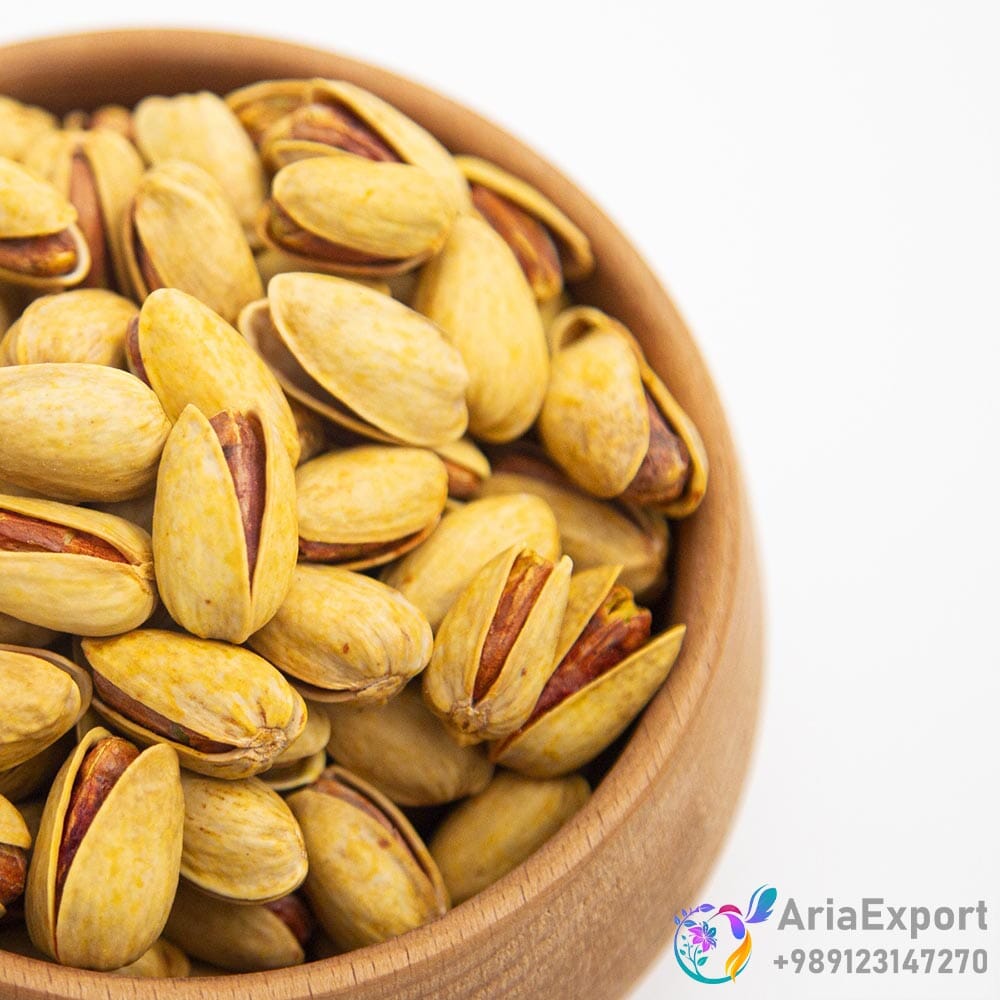
Appearance of Akbari Pistachios
Akbari pistachios are the well known “smiling Iranian pistachios”, meaning their shells easily open. When ripe, their outer shell is red, and the skin covering the kernel is purple and brown. The inner kernel is typically yellowish, and its shell has a relatively dark, bone cream color. Each Akbari pistachio weighs approximately 2 grams, and when dried, it can reach a length of 12.22 millimeters.
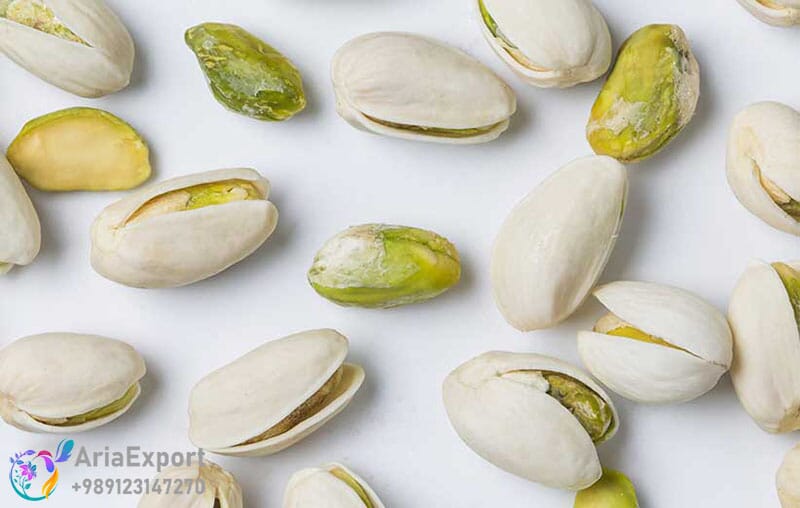
Akbari Long Pistachios Characteristics
Some of the Characteristics for Akbari pistachios are as follows:
- Expensive Export Pistachio
- Elongated and Large
- Dark Creamy Bone Colored Shell
- Brownish Purple Kernel
- Late Maturing Variety
- Medium Open Mouth Percentage
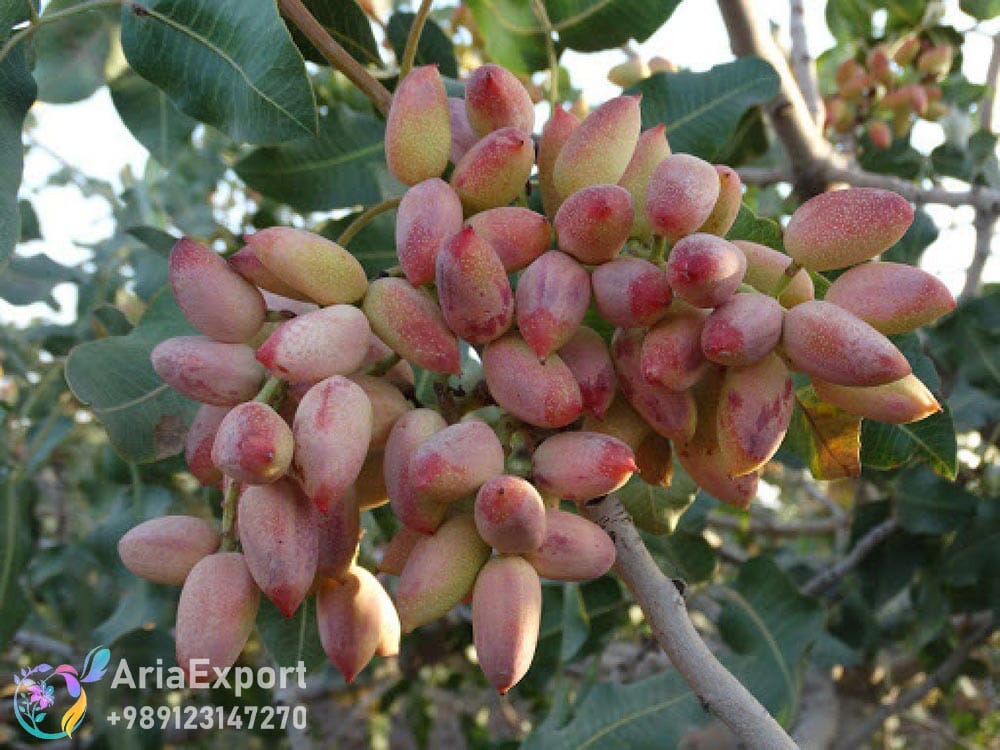
Akbari Pista Technical Specifications:
Akbari Pistachio Technical Specifications | ||||
No. | Characteristics | Unit | Measurement Limit | |
Raw Pistachio | Roasted Pistachio | |||
1 | Taste and Smell | - | Natural | |
2 | Impurity | - | Negative | Negative |
3 | The Effect of Mold | - | Negative | Negative |
4 | Insect Damage | - | Negative | Negative |
5 | Foreign Material | - | Negative | Negative |
6 | Kernel without Shell | Weight percentage | Max 2 | |
7 | Kernel Content | Weight percentage | Min 54 | |
8 | Salt | Weight percentage | - | Max 2 |
9 | Moisture | Weight percentage | Max 5 | Max 3 |
10 | Closed Shell | Unit percentage | Max 2 | Max 1 |
11 | Blank | Weight percentage | Negative | Negative |
12 | Pistachios with Soft Skin (First Skin) | Unit percentage | Max 0.2 | Max 0.2 |
13 | Bad Color | Unit percentage | Max 0.8 | Max 0.5 |
14 | Bad Shape and End Open | Unit percentage | Max 1 | Max 1 |
15 | Open Less than 2mm | Unit percentage | Max 3.5 | Max 5 |
16 | Mixed Type | Unit percentage | Max 1 | Max 1 |
17 | Mixed Size | Weight percentage | Max 1.2 | Max 1.2 |
18 | Burnt Taste | Unit percentage | - | Max 1 |
19 | The Peroxide Value of the Extractive Oil | milliequivalent grams per kilogram | Max 1 | |
Microbiology:
Microbiology of Akbari Pistachio | ||
No. | Characteristics | Measurement Limit (CFU/g) |
1 | Total count of microorganisms | 105 for raw pistachio |
104 for roasted pistachio | ||
2 | Coliforms | 102 for raw pistachio |
10 for roasted pistachio | ||
3 | Mold | 103 for raw pistachio |
102 for roasted pistachio | ||
4 | Escherichia coli | Negative |
5 | Salmonella | Negative |
Maximum tolerated level of Aflatoxin:
Maximum tolerated level of Aflatoxin (µg/kg) | ||||
No. | Product Name | Aflatoxins | ||
B1 | Total B1+B2+G1+G2 | M1 | ||
1 | Akbari (Long) Pistachio | 8 | 10 | - |
Packaging Information:
No. | Product Name | Package Type | Net weight of each package (kg) | Container Type | Number of packages per container | Net weight per container (kg) |
1 | Pistachio | Bag | 50 | 20 FT | 240 | 12,000 |
2 | Pistachio | Bag | 50 | 40 FT | 500 | 25,000 |
3 | Pistachio | Carton | 10 | 20 FT | 1100 | 11,000 |
4 | Pistachio | Carton | 10 | 40 FT | 2200 | 22,000 |
5 | Pistachio | Carton | 12 | 20 FT | 1000 | 12,000 |
6 | Pistachio | Carton | 12 | 40 FT | 2000 | 24,000 |
7 | Pistachio Kernel | Carton | 10 | 20 FT | 1100 | 11,000 |
8 | Pistachio Kernel | Carton | 10 | 40 FT | 2200 | 22,000 |
9 | Pistachio Kernel | Carton | 12 | 20 FT | 1000 | 12,000 |
10 | Pistachio Kernel | Carton | 12 | 40 FT | 2000 | 24,000 |
Incoterms:
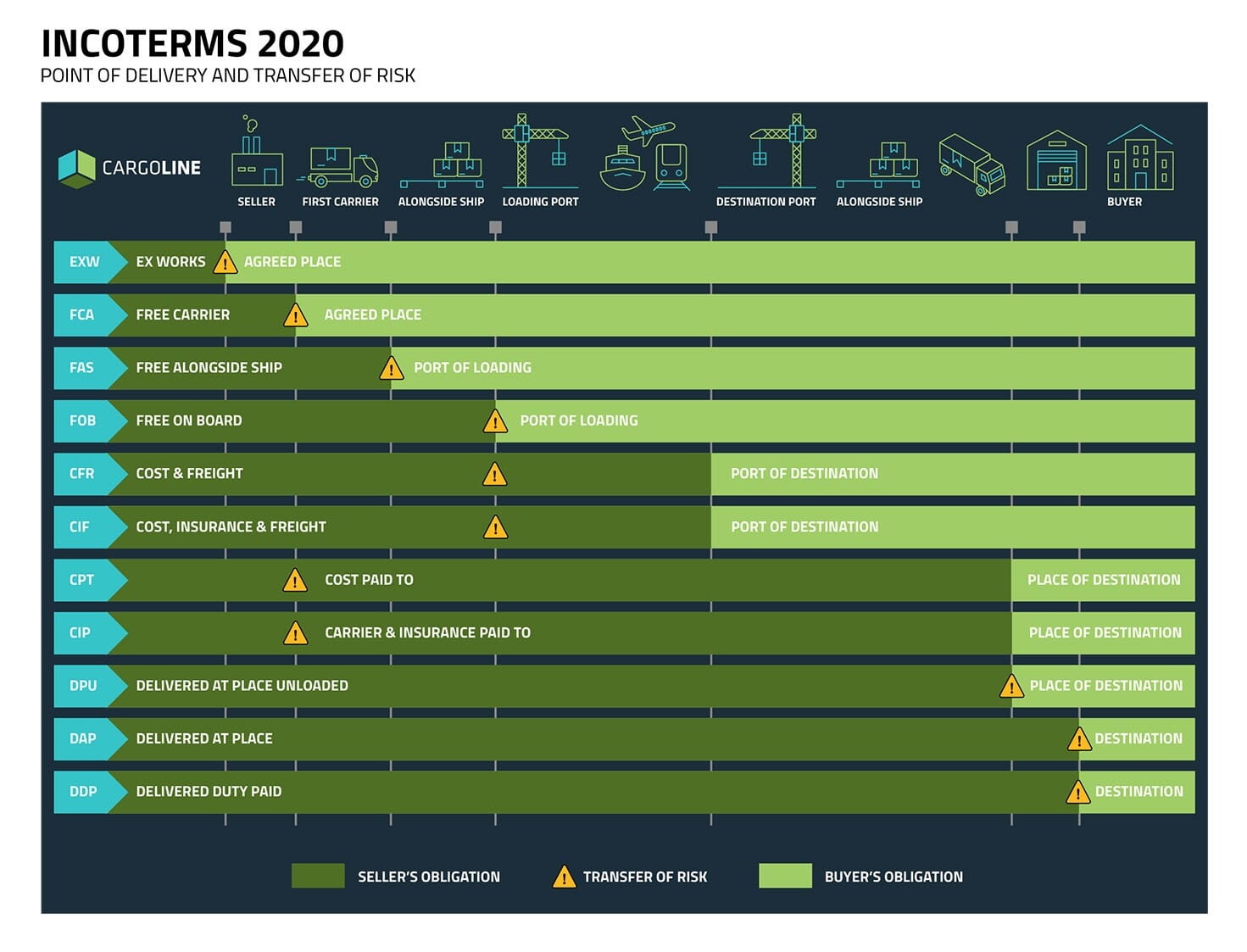
Storage Conditions: Pistachios should be stored in a dry and cool place. The suitable storage temperature for storing pistachios is between 0 and 10 degrees Celsius. If stored in proper conditions, it can be stored for 12 months.
Certifications
- Iran National Standards Organization
- Iran Plant Protection Organization
- Standard of Good Agricultural Practices
- Organic Agricultural Products Certification
- physical, chemical and microbial analyzes from the most reliable laboratories
- HACCP
- ISO
- FSSC
- IFS
- SGS
- BRC
Pesticide Residues
The residual amount of pesticides should be according to the national standard of Iran No. 13117.
Further Details 1
Pistachio Size: For calculating the pistachio size you need a digital scale. We separate 142 grams of pistachios and divide them into groups of 5. Now we call each bunch of 5 pistachios 1 ounce. By counting the number of bunches of 5, you can calculate the number of ounces of pistachios.
For example, if you had 26 bunches of 5, you can say that your pistachios are 26 ounces. The smaller the number of bunches, which is the pistachio ounce, shows that our pistachios were bigger and the fewer pistachios are in 142 grams.
Further Details 2
Diminished Aflatoxin Risk Pistachios (DARP):
DARPs are different from normal pistachios traded internationally in two respects:
- Drastically improved consistency of Aflatoxin test results. In particular in commercial lots undergoing repeated sampling at different stages of clearance.
- Improved quality in terms of physical characteristic specified below:
- Uniformity of commercial lot in size
- The miniscule presence of foreign material
- The good appearance of pistachios being devoid of colored, deformed and unripe nuts
Aria Export can accept responsibility of passing defined sampling and testing control regimes in Iran or abroad. This control regime can be based on inspections from Health Authorities in entry points or final buyer’s premises by an independent inspection team. Eventually this control regime can be based on any independent inspection team at origin.


| Serving Size | 100g |
|---|---|
| Calories | 560 |
| Total Fat 45.3g | 58% |
| Saturated Fat 5.9g | 30% |
| Cholesterol 0mg | 0% |
| Sodium 1mg | 0% |
| Total Carbohydrate 27.2g | 10% |
| Dietary Fiber 10.6g | 38% |
| Total Sugars 7.7g | 15% |
| Protein 20.2g | 40% |
| Vitamin C 5.6mg | 6% |
| Vitamin D 0mcg | 0% |
| Iron 3.9mg | 22% |
| Calcium 105mg | 8% |
| Potassium 1025mg | 23% |
| Phosphorus 490mg | 39% |
